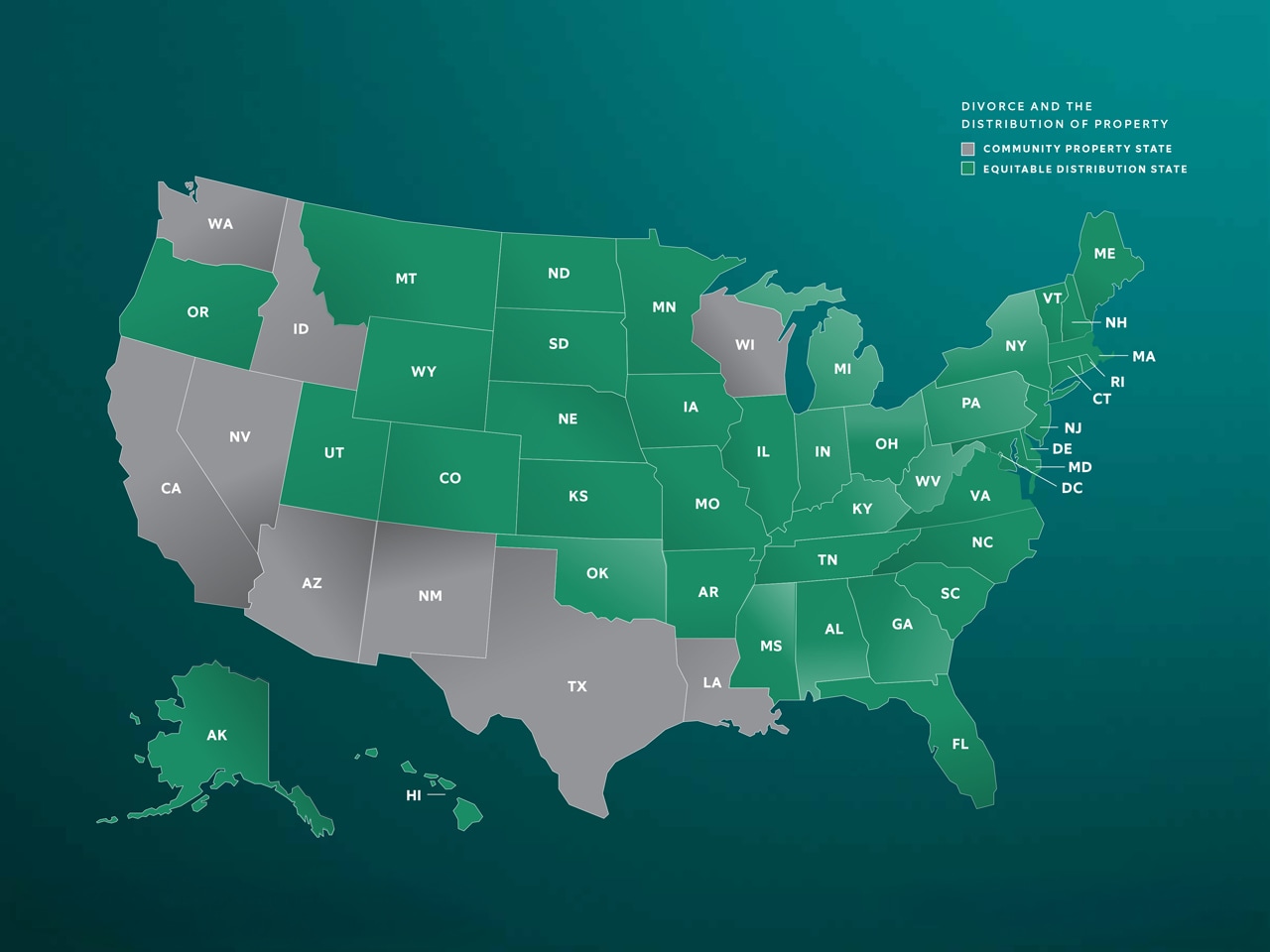Premarital agreements are powerful planning tools for reducing uncertainty, but their scope and enforceability are largely governed by state law.
A premarital agreement, often called a prenuptial agreement or a “prenup,” is a contract between people who intend to marry. It governs certain rights and obligations both during the marriage and in the event of the dissolution of that union.
Premarital agreements are not necessary for every couple considering marriage. For example, certain young couples marrying for the first time with few assets or debts, where neither party is expecting to inherit significant wealth or is the beneficiary of a trust, potentially have reduced need for a prenup. Broadly, however, we believe premarital agreements are important planning tools, offering an array of benefits for individuals and couples entering marriage.
- Fundamentally, prenups can help safeguard assets without laborious practices otherwise necessary for separation of property.
- They can reduce potential litigation costs and contention in the event of a divorce and provide some predictability to the future division of assets and income.
- They can give spouses the opportunity to waive inheritance rights and protect business and other property interests.
The drafting of premarital agreements helps reduce uncertainty and enhance peace of mind upon entering a marriage and throughout a couple’s lifetime together. But it does more. It encourages the important conversations surrounding money — for example, about marital tax filing status and alignment on best credit practices.
THE ROLE OF THE STATE
Although all U.S. states and the District of Columbia recognize premarital agreements, individual state laws govern both marriage and the dissolution of marriage — and those laws differ regarding what can be covered by premarital agreements and whether they are enforceable. To bring clarity and consistency to the legal treatment of premarital agreements, 26 states and the District of Columbia have enacted the Uniform Premarital Agreement Act of 1983 (UPAA), though with myriad variations. Two more states have instead recognized the updated and revised Uniform Premarital and Marital Agreements Act of 2012 (the UPMAA). Your starting place is to understand which laws your home state recognizes.
Premarital agreements bring detail and clarity if a marriage dissolves or one of the parties dies. For example, without an agreement, most income earned during the relationship is considered a marital, or community property, asset, and maintenance/alimony payments would more than likely have to be negotiated or litigated after the fact. Second, prenups require both members of a couple to disclose all assets at the time of marriage. (Note that state law varies on whether a “full” or “fair and reasonable” disclosure is required.)
Without a premarital agreement, the default law of the state in which the couple is largely domiciled will govern their property rights during their marriage. A premarital agreement provides an opportunity for spouses to modify default rights and obligations during the marriage and upon divorce/death should they find the results under the applicable state law less than desirable.
What can a premarital agreement cover?
Section 3(a) of the UPAA provides a delineation of various subjects that are permissible to include in a premarital agreement. Some jurisdictions have adopted this section entirely, while others have modified it. States that have not adopted the UPAA have their own laws surrounding the governance of premarital agreements.
Generally, an agreement can govern:
- How property rights and obligations are disposed after divorce or death;
- How spousal support could be changed or eliminated;
- How a will or other arrangement could carry out the agreement’s provisions;
- How the death benefit from a life insurance policy is handled; and
- Other matters that do not violate public policy or criminal laws.
The Impact of State Laws

One of the most critical factors impacting the scope of a premarital agreement is whether you live in an equitable distribution or community property state. Most states are equitable distribution states, but nine are currently community property states. Several others, such as Alaska, allow couples to opt into community property treatment. The differences between divorce in equitable distribution states and community property states manifest in three key areas:
Property
Equitable distribution states treat members of the marriage as individual, joint owners of any property acquired during the marriage. When a marriage ends, that property is divided “equitably” rather than equally. Essentially, in splitting assets, a judge tries to determine what is fair to each member and what each member needs, which may well not result in a 50/50 split.
In community property states, both individuals are considered equal, one-half owners of marital property. Division of property is 50/50. There are still complications, though. Property acquired through a gift or inheritance, or prior to the marriage, is generally treated as separate property.
Income
Most equitable and community property states treat income a little differently. While both generally classify wages earned during the marriage as marital or community property, some community property states classify income earned after a couple’s separation but prior to entry of a judgment for dissolution of marriage (also known as a divorce decree) as separate property. By contrast, equitable distribution states generally say that all this income remains marital until the entry of a judgment. Each state also varies in the classification of unearned income and income earned from nonmarital or separate property.
Spousal Support
While some states, such as Iowa, do not allow parties to a premarital agreement to contract regarding spousal support, many other states do allow parties to modify or eliminate rights to receive, and obligations to pay, spousal support. It is wise to learn what state law says about spousal support and the factors a court uses to determine the amount and duration of such an award.
—
In our experience, the most successful premarital planning is founded not only on detailed technical planning, but a deliberate strategy for candid communication on finances and goals prior to entering a marriage. Note that, while prenuptial agreements are widely used, there are several viable alternatives — including for those who prefer not to use a prenuptial agreement as well as cohabitating couples. We recommend working with a blended team of experts, including a family law attorney, estate planning attorney and financial advisors to determine the best options for your personal circumstances.
The above article is excerpted from our book Secrets of Enterprising Families. To learn more about the topics covered in the book, including premarital planning, listen to our podcast Secrets of Enterprising Families.



